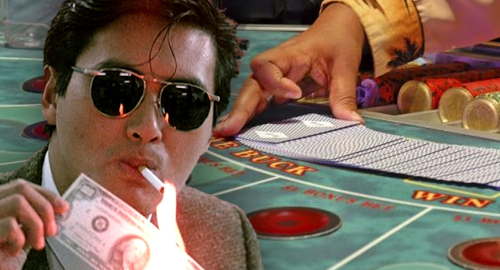 Baccarat gamblers get more reckless after they win, while losing online racing bettors log off for longer periods than winners.
Baccarat gamblers get more reckless after they win, while losing online racing bettors log off for longer periods than winners.
Japanese researchers recently published a study that crunched nearly 8m hands of baccarat played by nearly 4k “middle-aged Asian male” players at the Paradise City casino in South Korea. The goal of the study, which was published in the International Gambling Studies journal, was to determine how repeated and risky betting behavior varies as a function of outcome history.
The researchers sought to detect what effect a sustained winning or losing streak had on gamblers’ intensity levels, i.e. differences in size of betting stakes and whether gamblers made riskier bets (low probability, high reward) based on how well or poorly they did on their previous wagers.
The researchers concluded that gamblers became more reckless after consecutive wins than after consecutive losses. The size of their wagers gradually increased the longer their streak lasted, and this effect was “more pronounced” after sequential wins than sequential losses.
Consecutive wins also led gamblers to take more ‘longshot’ bets, as “the experience of wins supposedly creates expectations that similar consequences will follow in the future.” Despite the unlikelihood of winning, gamblers choose these longshot options after sequential wins “due to enhanced risk taking.”
Gamblers who experienced consecutive losses made fewer of these longshot bets, but they also tended to bet more money on regular bets after losing than after winning, at least, provided the streak length was shorter. The researchers called this classic ‘chasing behavior’ – risking higher stakes to try to recoup losses.
The researchers concluded that while chasing losses was an important component of problem gambling, “the experience of a win, especially consecutive wins, is more influential on forming risky betting behavior, at least in baccarat games.”
The researchers stressed that their findings didn’t provide insights into ‘typical’ chasing behavior, which they defined as ‘between-session’ chasing. Further study is needed to determine “how repeated and risky betting behavior are influenced by the session-by-session outcome history.”
LOSING ONLINE RACE BETTORS TAKE LONGER BREAKS
A separate study by researchers at the University of Eastern Finland published in the Journal of Gambling Studies took a slightly longer view, trying to determine the effect of winning or losing on how soon an online horseracing bettor decided to come back for more.
The study examined the activity of over 9k customers of Finland’s former race betting monopoly Fintoto (which was absorbed into the state-run Veikkaus gambling monopoly in 2016) in August 2012. The average customer was a 51-year-old male who bet once every four days, wagering around €43 per session and losing around €12.
The data showed that bettors who’d suffered a losing day stayed away from Fintoto’s betting site 27% longer than bettors who’d had better luck. The data suggested this phenomenon was more pronounced in younger bettors and for relative newcomers to horse betting.
Interestingly, the data showed that the size of a bettors’ wins or losses didn’t impact the length of time before a bettors’ next session. In other words, “finishing ahead (or breaking even) in gambling is a decisive factor for a bettor, whereas the amount won is not.”